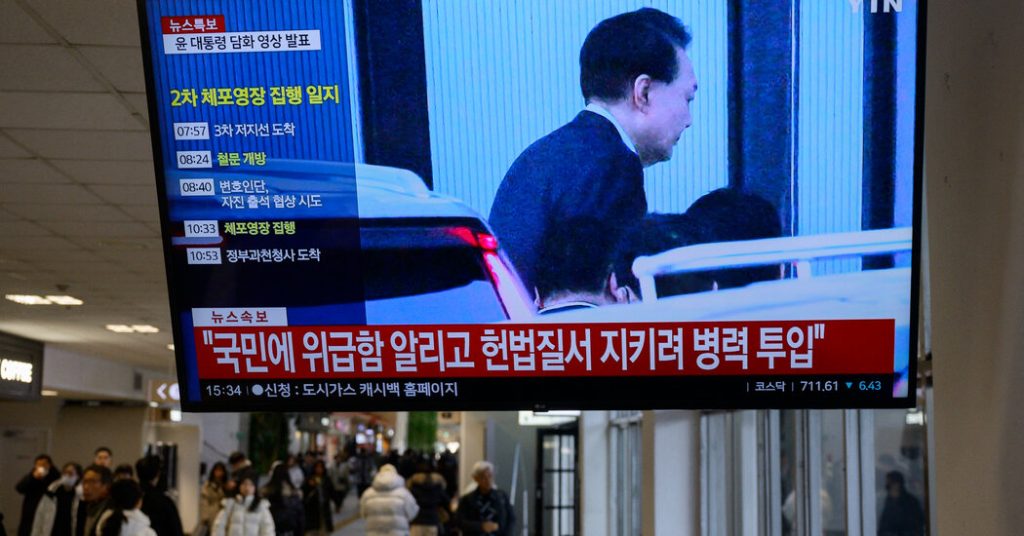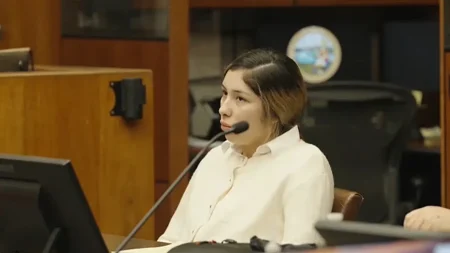From the opulent heights of the presidential mansion to the stark confines of a jail cell, the life of former South Korean President Yoon Suk Yeol has undergone a dramatic transformation. Once accustomed to lavish parties, a personal army of guards, and the trappings of power, Mr. Yoon now finds himself confined to a 107-square-foot cell in the Seoul Detention Center, his days punctuated by simple meals of noodles and kimchi soup and nights spent sleeping on the floor. This stark reality follows his arrest on insurrection charges related to his ill-fated attempt to declare martial law, a decision that has plunged him from the pinnacle of power to the depths of legal peril.
The arrest of a sitting president, a first in South Korean history, marks a watershed moment for the nation. Mr. Yoon’s detention transformed his status from temporary detainee to criminal suspect, facing the grim prospect of indictment and trial. The charges against him carry the weight of life imprisonment or even the death penalty, a stark contrast to the life of privilege he enjoyed just weeks earlier. The swiftness of his fall from grace is a cautionary tale of political hubris and the fragility of power. From hosting elaborate gatherings and serenading foreign dignitaries with karaoke performances, Mr. Yoon now faces the daunting prospect of navigating the complexities of the South Korean legal system.
The Seoul Detention Center, a place Mr. Yoon once sent political rivals, now serves as his own temporary residence. The irony is not lost on observers, as the former prosecutor who helped imprison ex-president Park Geun-hye on corruption charges now finds himself confined within the same walls. While he receives no special treatment beyond a private cell, the stark difference between his former life and his current circumstances underscores the magnitude of his fall. The amenities of his cell — a TV with limited programming, a sink, a small cupboard, and a foldable mattress — offer little comfort compared to the luxuries he once enjoyed.
The former president’s reliance on right-wing YouTube channels, which fueled his anxieties and suspicions about domestic enemies, stands in stark contrast to his current situation, where access to the internet, including YouTube, is denied. The “digital detox,” as some protesters have termed it, forces Mr. Yoon to confront the consequences of his actions without the echo chamber of online affirmation. He now must contend with the reality of his situation, a far cry from the partisan narratives that once shaped his worldview.
Mr. Yoon’s legal team is preparing for a legal battle on two fronts. They are challenging the legitimacy of the impeachment vote in the Constitutional Court, arguing for his reinstatement as president. Simultaneously, they are preparing for a criminal trial on the insurrection charges. The former president maintains his innocence, claiming his declaration of martial law was a legitimate exercise of presidential power. He has, however, refused further questioning by investigators, seemingly resigned to his current predicament and unwilling to engage in what his lawyer describes as a “question-and-answer type of interrogation.”
The dramatic shift in Mr. Yoon’s circumstances serves as a stark reminder of the precarious nature of political power. His story, from presidential privilege to incarceration, has captivated the nation, eliciting reactions ranging from outrage to disbelief. While some supporters continue to rally outside the detention center, proclaiming his innocence, the legal process now dictates his fate. His future remains uncertain, hanging in the balance as the courts determine the consequences of his actions.









